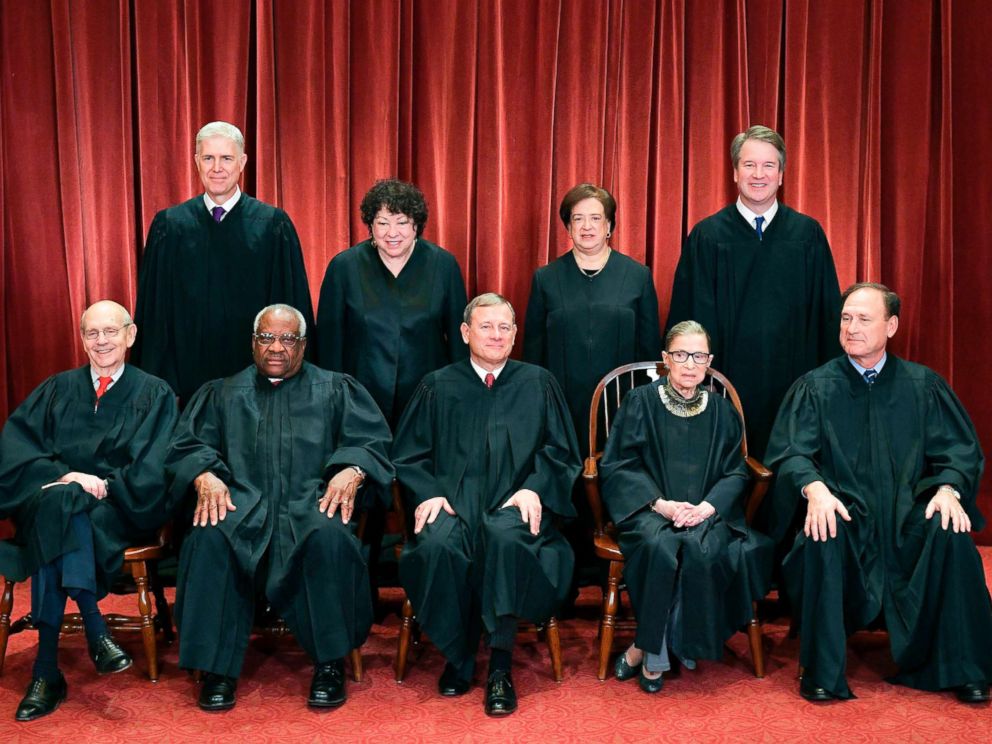In a pivotal 6-3 decision on June 23, 2025, the U.S. Supreme Court handed the Trump administration a significant legal victory, allowing it to proceed with deportations of certain illegal immigrants to third countries without prior notice or additional hearings. The ruling marks a major moment in immigration policy, reinforcing the federal government’s authority to manage deportations under stringent new terms.
The case at the center of the ruling involved a group of undocumented immigrants who challenged their deportations to countries other than their countries of origin—so-called “third countries” such as El Salvador, Libya, and South Sudan. These individuals argued that being sent to these nations exposed them to risks of torture, persecution, or other serious harm. A federal judge in Boston, U.S. District Judge Brian Murphy, had previously issued an injunction blocking such deportations. He ruled that affected migrants must remain in U.S. custody until they were granted the chance to undergo a “reasonable fear interview,” a critical safeguard that lets detainees express concerns about potential dangers if returned to a particular country.
However, the Supreme Court’s conservative majority disagreed, granting the Trump administration’s request to stay the injunction. This decision clears the way for the government to resume deportations without requiring additional hearings for migrants being sent to these third countries. The ruling was along ideological lines, with Chief Justice John Roberts joining four other conservative justices to form the majority.
In dissent, Justices Sonia Sotomayor, Elena Kagan, and Ketanji Brown Jackson expressed deep concern over the ruling. Justice Sotomayor’s dissent criticized the majority for overturning the lower court’s protections, warning that the decision risks violating international law, including the prohibition against torture, as well as basic due process rights for vulnerable migrants. “Rather than allowing our lower court colleagues to manage this high-stakes litigation with the care it requires, this Court now intervenes to grant emergency relief to the Government,” she wrote.
U.S. Solicitor General D. John Sauer, representing the Trump administration, argued that the injunction had blocked the deportation of “some of the worst of the worst illegal aliens.” He noted that the migrants in question were being held at a U.S. military base in Djibouti while awaiting interviews, emphasizing that the administration’s policy aimed to expedite the removal of individuals who pose a security risk.
This ruling follows closely on the heels of a Supreme Court decision last month affirming the president’s authority to rescind temporary deportation protections for hundreds of thousands of immigrants from Venezuela, Haiti, Nicaragua, and other countries in South America and Africa.
Together, these rulings represent a firm judicial endorsement of the administration’s tough stance on immigration enforcement and its broad powers to determine deportation policies, even amid fierce legal and public debate about migrants’ rights and protections.

Sarah Mitchell is a bestselling novelist recognized for her insightful and emotionally resonant stories that explore the complexities of human relationships. Originally from Denver, Colorado, Sarah grew up in a family of teachers who nurtured her curiosity and love for storytelling. She studied psychology at Stanford University, where she became fascinated by the intricacies of human behavior—an interest that would later shape her writing career. Sarah’s novels are praised for their nuanced characters, intricate plots, and ability to capture the subtle tensions that define love, friendship, and family ties. Her breakthrough novel, The Spaces Between Us, became an instant bestseller, lauded for its honest portrayal of strained family relationships and the fragile bonds that hold people together. Since then, she has published several works that continue to captivate audiences around the world. Outside of her writing career, Sarah is passionate about mental health advocacy and often partners with organizations to promote awareness and support for those struggling with emotional well-being. Her personal life is quieter—she enjoys hiking in the Colorado mountains, practicing yoga, and spending time with close friends. With each new book, Sarah Mitchell cements her reputation as a writer who illuminates the beauty and struggles of human connection.









